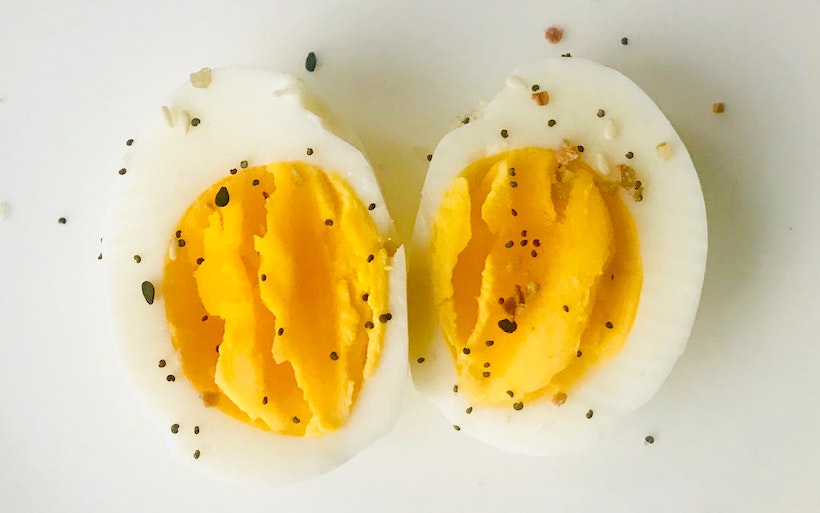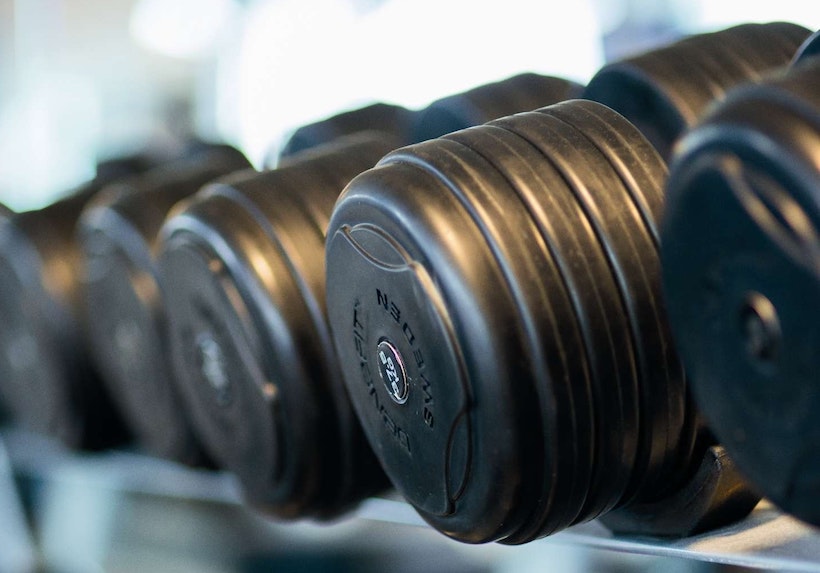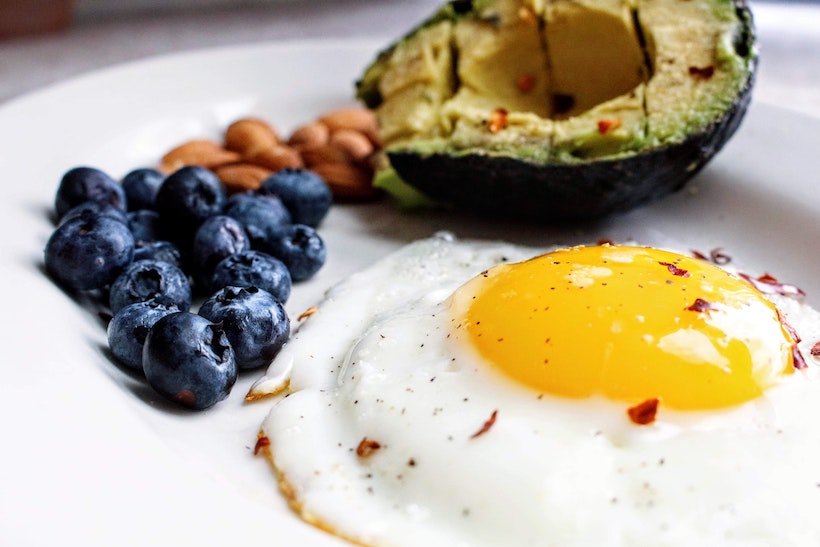Eggs are fantastic. They're easy-to-find, tasty, and cheap, and there are endless ways you can use them in a dish.
Best of all: eggs benefit your health in some surprising ways. In this post, I'll take you through the incredible egg and some of the proven health benefits you'll get from consuming them.
Understanding how we get the eggs that we consume comes with understanding what those eggs are and what they aren't.

To put it scientifically, an egg is a vessel, principally laid by female animals, containing a zygote where an embryo eventually forms. The most common eggs we consume are from chickens, and they're unfertilized most of the time – you can't hatch the carton you get from the store.
The market size for chicken eggs in the U.S. alone numbers tens of billions of eggs a year. In 2019, Americans consumed 287.1 eggs per capita!
Not everyone can or wants to consume just chicken eggs, however, despite their unwavering popularity. Honestly, I don't mind broadening my food horizons and trying something out of the ordinary. In this case, other animals lay eggs we can use as food.
Beyond chickens, other commonly eaten eggs include eggs from other birds such as ducks, quails, geese, and ostriches.
You can, of course, move beyond birds to other species as well. Fish roe – and the infamous caviar (eggs from Sturgeon) – are also very popular to eat worldwide.
Sometimes you just can't use eggs in a dish (for example, you have allergies), and that's perfectly fine. There are many substitutes you can use instead that may get you the results you need... if not the nutrition.
For cooking purposes, you can find a commercial egg replacer that typically includes potato starch as well as some leavening agents inside. Other standard replacements include using silken tofu in baking recipes that call for eggs.

Humanity has consumed eggs for thousands of years. There are Ancient Egyptian records that showcase fowls laying eggs for humankind.
For the U.S., there's a chance native fowl existed in the Americas before Christopher Columbus – although he is credited with bringing chickens to the region. These birds originated in Asia, and they closely resemble today's chickens.
There are well over 100 breeds of chickens around the world, but the production of eggs took off a bit slowly as they remained primarily in the backyards of homes even in the early 1900s.
Nowadays, as you saw, the U.S. alone can produce more than 70 billion eggs per year. Still more staggeringly, that's only roughly 10% of the supply of chicken eggs worldwide!
There's a deep symbolism surrounding eggs that spans multiple cultures. Egg-laying mammals are indeed found worldwide, so it's no surprise egg-based imagery is a common thread in many cultures, past and present.
Religious cultures have also embraced the symbol of the egg. Some, like Christianity, view an egg in terms of the Resurrection. Others, like Judaism, instead look at it as a symbol of loss and mourning.
Even outside of the large religions, many cultures and people worldwide view eggs as a symbol of rebirth. The whole hatching out of a shell and shedding that layer that highlights a magical revival is mysterious (an miraculous), and it isn't hard to see why eggs had such an impact on our predecessors.
Were you looking for some inspiration for your next egg-based meal? Thankfully, you don't have to search for long as there are dozens of ways you can transform eggs.
Some common egg dishes include scrambled, boiled, fried, omelets, and poached. Like 'em hard boiled? I've got you covered with picks for top egg slicers.
Of course, there are many ways to elevate everyday dishes into something different and unique. I like a stuffed-up frittata, or an E.L.T. – an egg, lettuce, tomato sandwich.

Let's concentrate on the chicken egg, as it's the most popular egg for consumption worldwide. Here are some of the things that make up a typical egg
One of the first things many people associate eggs with is protein. And for a good reason – egg protein has a balanced ratio of amino acids and is one of the easiest to digest of all types.
A single chicken egg can contain as little as 4g of protein up to as high as 8g. The number mostly fluctuates based on how large the egg is.
You'll, of course, get a lower amount of protein if you separate the parts. The yolk carries about half of the egg's total protein, so if you, for example, only eat the whites, you need to divide it by 2.
On the topic of the yolk, that bright yellow part is where you'll find most of the fat.
The majority of that fatty acid composition, just less than 40%, is monounsaturated fats. Saturated fats take up the next large amount, while polyunsaturated sits at the lowest type of fat found in an egg.
Like with protein, the total fats can go up or down based on the egg's size.

There's plenty of controversy surrounding eggs and cholesterol – I'll unpack that soon. For now, let's talk about what cholesterol is in the average chicken egg.
An average egg of medium size usually contains around 177mg worth of dietary cholesterol. All of this is found inside the lovely yolk, which is also loaded with numerous nutrients.
Selenium is a necessary mineral used by the body, and it's yet another nutrient you can get from a single egg.
If you consider a large hard-boiled egg, there's an estimated amount of 15.4µg. That's around 28% of what the Food and Nutrition Board recommends daily.
Lutein is a carotenoid, or an organic pigment produced by plants. Chickens (or your other choice of fowl) who get lutein in their diet will pass it into the egg – eggs generally contain a healthy dose.
Although we don't know lutein's exact role in the human body, your retinas have an affinity for the substance. It appears to help stave off eye-related disorders such as macular degeneration and cataracts.
Notably, the yolk of eggs holds a fair amount of lutein. One egg yolk should offer around 200µg of lutein, and it has a higher bioavailability compared to that of vegetables that have lutein in them.
Another component found in eggs is choline. A precursor to acetylcholine, this neurotransmitter promotes your brain health concerning memory and concentration.
An egg is a good all-natural source for it, as you can find about 147mg inside one large egg. You'll find most of it, 90%, in the yolk.
A single large egg can pack many nutrients vital for your well-being, most of which are found in the yolk. Beyond the likes of choline and lutein, eggs also contain the likes of iodine and folate.
Eggs are also a natural source of antioxidants such as zeaxanthin and selenium. One large egg may also contain around 0.9mg worth of iron.
Just as eggs are packed with healthy nutrients, they also can load you up on some good vitamins.
An egg is an excellent source of Vitamin D, at around 40-50 IU per egg. I wouldn't try to get all my recommended vitamin D from eggs, but there is enough to stave off the worst deficiencies.
Additionally, eggs contain Vitamin B2 and Vitamin E, both of which act as antioxidants as well.
Two eggs can also deliver a good amount of Vitamin B12 and Vitamin A.

Now let's get into the meat (ahem, the yolk) of the article: the health benefits of eggs. Here's a list of eight well-known health advantages egg consumption can give you.

If you're looking to lose weight, consider eggs your secret satiety weapon.
Satiety is the "feeling of fullness," literally the reduction in the desire to eat more. Since so much of a diet is staying motivated, satiety from eggs helps you fight temptation.
In one study, researchers utilized an egg breakfast meal for obese and overweight participants to test how satiating the meal could be.
Their findings discovered that participants did indeed feel fuller after the egg breakfast compared to the other foods used in the study. Not only that, but the eggs helped create a sustained caloric deficit, which means participants consumed fewer calories than they burned. And a caloric deficit means they ultimately could lose weight.

Those with cardiovascular risks may feel comforted that research found a link between egg consumption and a reduced risk of cardiovascular-related illnesses.
Weighing the nutritional qualities of eggs helped researchers conclude that consuming more than the recommended number of eggs daily (based on country guidelines) may help improve those who have a high risk of cardiovascular disease.
Studies also found that some people who had an egg a day showed a lower risk of hemorrhagic stroke as well as a lower risk of dying from stroke. There was an estimated 18% reduced chance of dying from cardiovascular disease among those that ate an egg daily.

There's no denying that eggs contain antioxidants such as lutein and zeaxanthin – but what benefit do they serve?
As I mentioned before, even though we don't know all the mechanisms, they work on improving your eye health. There's plenty of research to back up the claim as well.
Studies concluded that those antioxidants have an important role in helping prevent cataracts and age-related macular degeneration.

The battle on eggs and cholesterol is a long one, but thankfully, we can declare one party a winner. Eggs help improve HDL cholesterol levels – high-density lipoprotein, or "good" cholesterol.
Research indicated that through six weeks of egg consumption, participants showed a 10% increase in HDL. Their total cholesterol only increased by 4%.
This highlights how regular egg consumption isn't as worrying as we've made it out to be since the 1940s & 50s. In fact, one of the most famous case studies of all time – a man who obsessively ate 25 eggs a day for over 15 years – showed that high dietary cholesterol intake doesn't necessarily lead to dangerous blood levels.

Continuing the topic of cholesterol, researchers found that normal egg consumption could also help modulate LDL cholesterol. (That's low-density lipoprotein or "bad" cholesterol.)
A high intake of cholesterol from eggs can lower LDL, so the studies indicate that eggs can help balance out the bad and good cholesterol for healthier ratios.

Yet another topic I touched on earlier in the ingredients is choline. You already know that choline largely benefits our neurodevelopment. It can also help improve our memory and more.
It's obvious how much it benefits everyone, but did you know that it's especially important for pregnant women? It doesn't only help your brain health, but also aids brain growth and development in the unborn.
Research consistently shows that choline is critical during fetal development – limited lutein intake can be devastating. Thankfully, regular egg consumption can provide a healthy dose of choline.

We talked about eggs helping improve and reduce the risk of cardiovascular disease. That also leads to cutting down on your stroke risks.
Studies showed that consistent egg consumption of even one per day could help decrease an individual's overall risk of having a total stroke. This may be because eggs contain nutrients, vitamins, and antioxidants that can help lower the likes of inflammation or lower the risk of other stroke-inducing conditions.

As a surprise to no one, eggs are a great source of protein. I stated before how the amount of protein inside an egg changes based on the size of the egg, but you can get a good dose of it with regular intake – or eating more eggs per meal!
Protein has many positive impacts on your body, such as tissue maintenance and muscle growth. Eggs are an easy way to boost the amount of protein in your diet.
In the face of my love of eggs, I'll always mention the health benefits. However, the story isn't always positive.
To steal the phrase from medicine, "if there are no adverse effects, it doesn't work." So too with eggs – let's cover some potential downsides.
Like with anything else in life, there's a chance that eggs can cause an allergic reaction. Eggs are among the most common food allergies discovered in children. (My dad is allergic to eggs – luckily though, I was spared.)
Just like with any reaction, you can have mild or severe reactions to eggs. It's important to keep an eye out when first exploring eggs with toddlers and kids.
If you do discover an allergy, you'll have to do more than avoid shell eggs themselves. Eggs are found everywhere – in food products as diverse as mayonnaise, frostings, puddings, and almost every category you can think to eat.
Read the ingredients of anything you buy if there is a chance they might contain eggs. Most countries mandate manufacturers call out common allergens such as dairy, eggs, and peanuts.

It's impossible to talk about eggs without putting tons of thought into the cholesterol controversy that has targeted them since the 1950s.
Eggs do indeed contain cholesterol, especially in the yolk. This has led some people to only consume the egg whites, which contain protein but only a negligible amount of cholesterol. If you do this, you'll miss out on the other nutrients that make up the yolk.
With that said, it seems that consuming dietary cholesterol doesn't necessarily result in dangerously elevated serum – or blood – cholesterol. But, of course, it's a sticky subject.
I eat as many eggs as I like without worrying about the effects on my cholesterol. You should do your research and talk to your doctor before changing your diet drastically. If you do change your diet, it's easy to get a cholesterol test to see how it's affecting your serum cholesterol levels.
To wrap up our findings in a simple answer: yes, eggs are good for your overall health.
They are loaded with nutrients and vitamins that act as antioxidants inside your body. These antioxidants can improve your eye health and neurodevelopment and help cut back on the risks of cardiovascular disease.
Eggs are also a fantastic protein source and contain minerals like choline, which help your brain health.
You all probably know my answer to this by now. As an advocate of eggs, I believe everyone who can consume them should.
Of course, I also believe it's essential to focus on moderation and balance. Too much of anything can hurt, and because eggs contain good cholesterol, that doesn't mean you can over-indulge in them and not see any adverse effects.
At least some percentage of people do seem to overreact to the cholesterol in eggs – you want to get tested to find out if you're one of them.

The main class of people that should avoid eggs are those of you with egg allergies. Otherwise, consider your current health and talk it over with your physician before you make major dietary changes.
I'm a true believer in the egg. It's such a convenient vessel for high-quality protein, mixed with essential vitamins and minerals.
Plus, the egg dishes you can make can't go wrong – They scramble them up, make an omelet, or just fry and eat. You can't go wrong.
So, grab yourself some eggs and enjoy your meal. And rest assured that for most people, the benefits far outweigh the risks.
Great Post ?
Thanks so much, glad you enjoyed it!